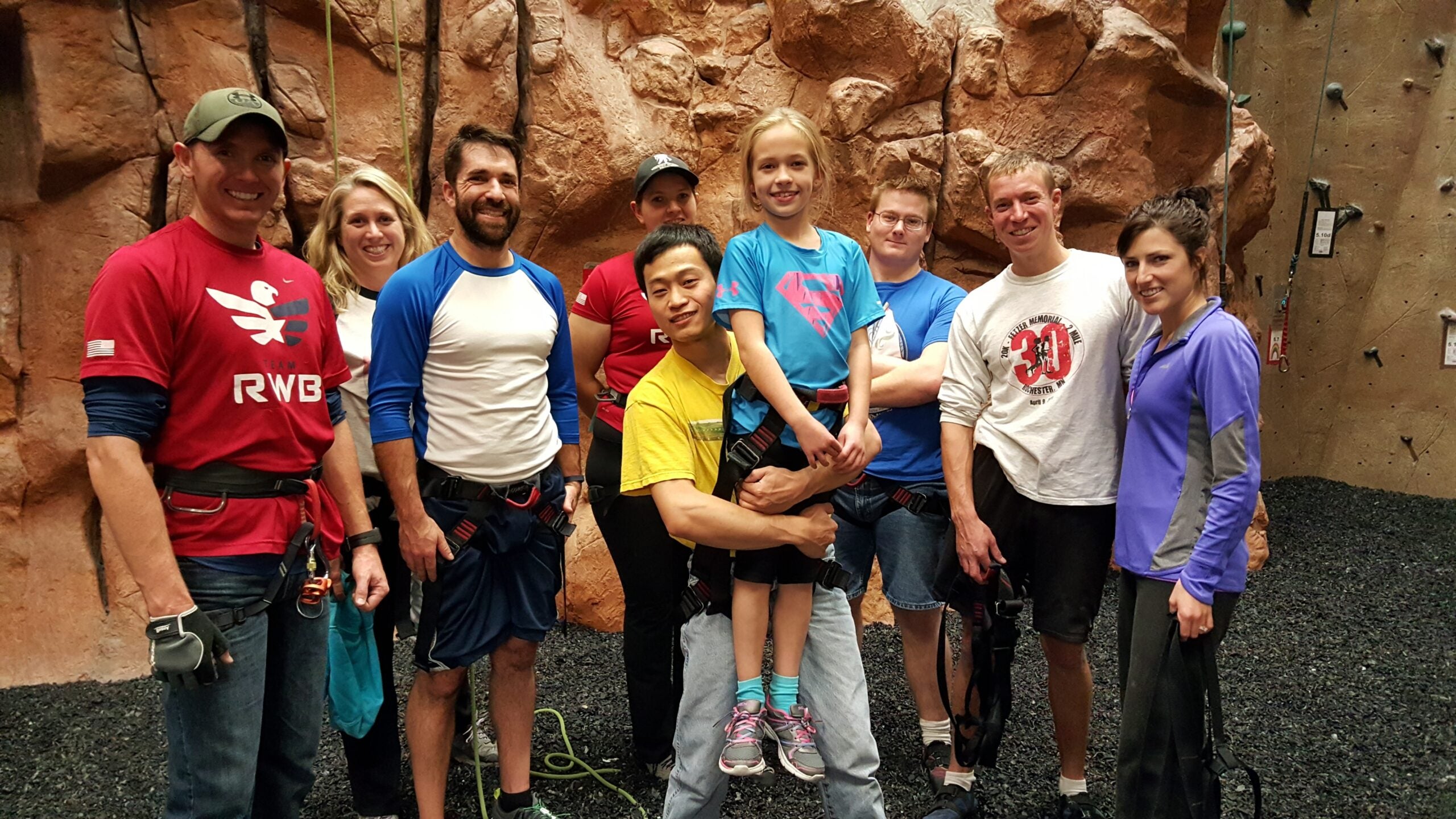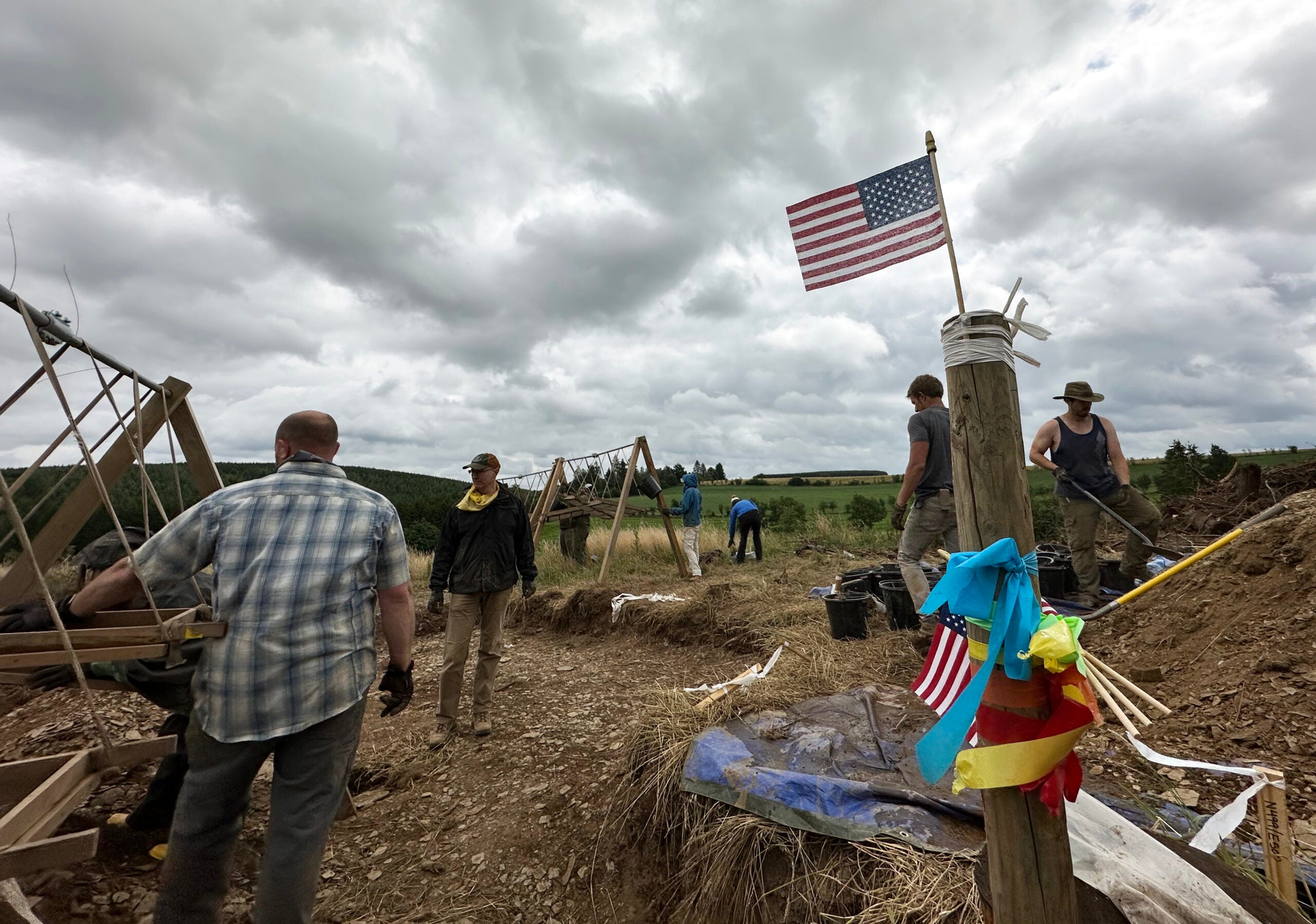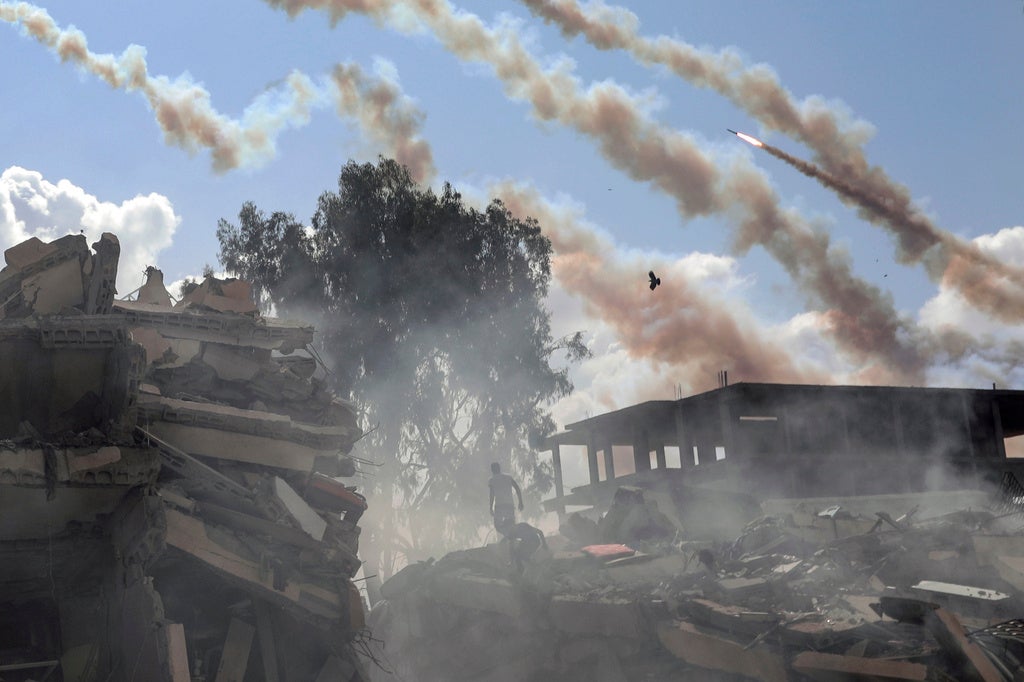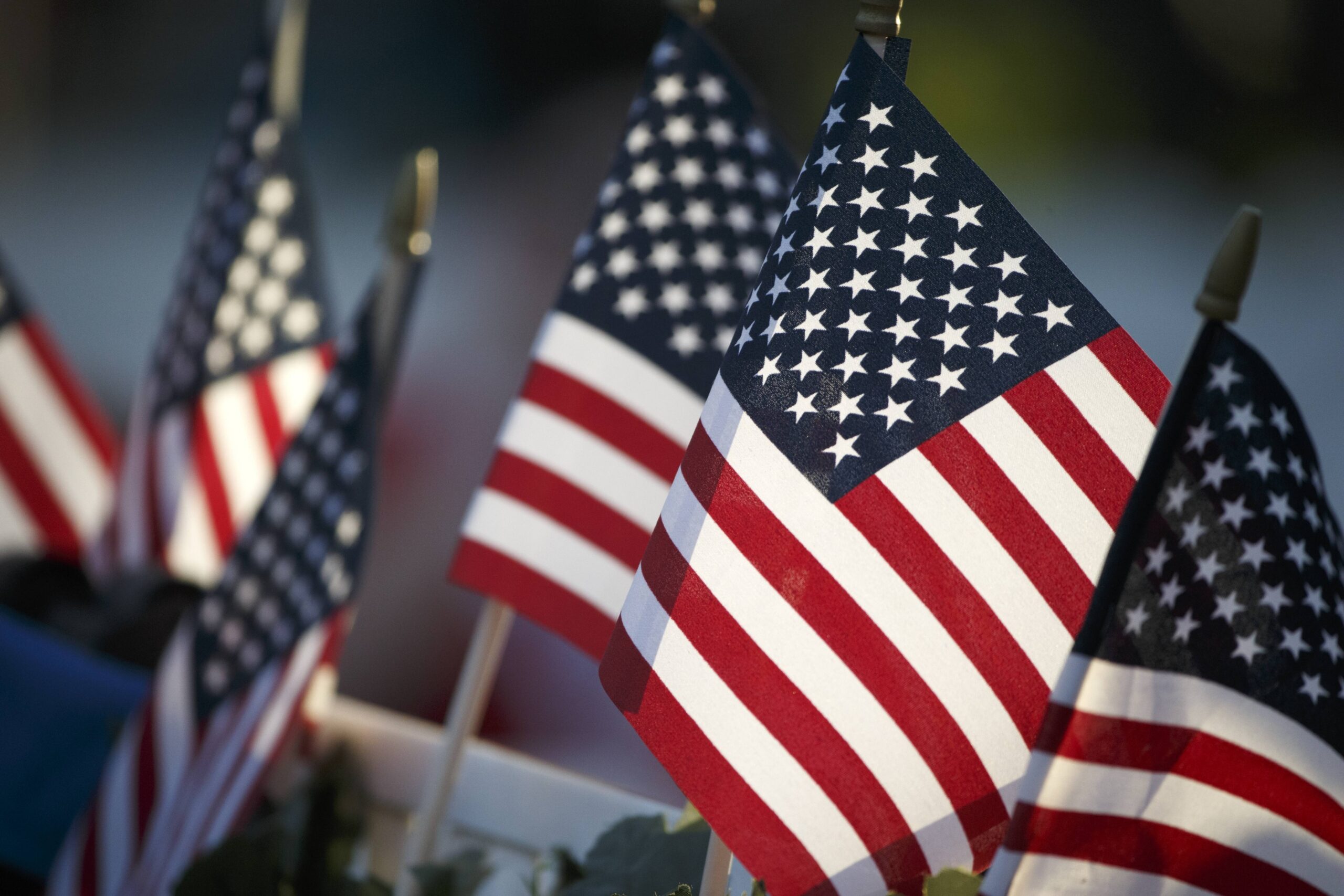Post-traumatic stress disorder in military veterans is a problem more widespread than many people in the general public might realize. Anywhere between 10 to 20 percent of veterans who have returned home from the wars in Iraq and Afghanistan have experienced PTSD, according to the federal government.
To support those veterans, a national program operating in the Duluth-Superior area called Team Red, White & Blue is striving to connect them with community members and help them overcome their anxiety or depression.
Mike Waldron, of Duluth, Minnesota, served as a U.S. Marine during the first Iraq invasion. Now, Waldron is the Duluth chapter director of Team RWB.
Stay informed on the latest news
Sign up for WPR’s email newsletter.
“We go out in the Duluth-Superior area 40 times a month and we do different physical activities and social activities,” Waldron said.
Waldron himself struggled with severe PTSD for a long time. He said he began experiencing the symptoms five years after coming home
“That’s when I fell into the severe panic attacks,” he said. “I thought they were heart attacks and was going to the hospital for them thinking I was dying.”
Waldron went to the hospital five times, but physically, there was nothing wrong with him. As time went on, he said he began to have more trouble with daily life.
“I stopped taking care of myself,” said Waldron. “I moved out of state, so I didn’t have my family or friends support network. I realized it was very difficult for me to trust other people. I had a hard time making friends, so I was isolated.”
Waldron said he got counseling and medication, but he said it didn’t work for him. He began to lose hope and didn’t understand what was happening — that is, Waldron said, until he started getting better.
“I began working out and getting more involved in the community, and those two things combined were the biggest reasons why I was able to pull out of the severe PTSD,” he said.
Waldron said the endorphins from exercise helped ward off his anxiety and feelings of hopelessness.
Rock Climbing As Healing
On Monday, Team RWB met up at Vertical Endeavors in Duluth to go rock climbing. One of the activities they tried was a trust exercise. Katelyn Wood took part in the exercise — blindfolded, she hugged the climbing wall and inched upward, following the directions of the voice behind her.
Wood and her husband recently moved to the area from Winona, Minnesota. So far, they’ve taken part in a handful of events organized by Team RWB.
“I think it’s a good group for people who want to get out and do things, and they just don’t know how to do it,” she said.
Her husband, Kevin, agrees. He served as a flight medic with the Minnesota National Guard.
“You can tell that there’s a lot camaraderie with the group, so that kind of takes you back to the experiences that you’ve had in the military,” he said. “It definitely helps, as far as getting together with people who have had similar experiences.”
Victor Rigling of Duluth hasn’t served in the military, but that doesn’t stop him from hanging out with this group of veterans.
“A lot of people don’t realize how isolated (veterans) really are, so being able to get out and help them get active and find a place back in the community has just been fantastic,” said Rigling.
Buffy Moncel is a Hayward native that has taken part in Team RWB. A veteran of the U.S. Air Force Reserves, Moncel said she began experiencing PTSD after being sexually assaulted in the military and working with fallen service members at the Air Force mortuary.
“What I want to make stop is the flashbacks and the nightmares and the anxiety and the depression, and the feeling that I don’t have control over my mind,” said Moncel.
However, she said working out and spending time with the team has helped.
“It does something to my mind,” she said. “It releases those natural chemicals where I don’t need anti-depressants or anti-anxiety medications.”
Moncel said she’s just a happier person all around.
Wisconsin Public Radio, © Copyright 2024, Board of Regents of the University of Wisconsin System and Wisconsin Educational Communications Board.





